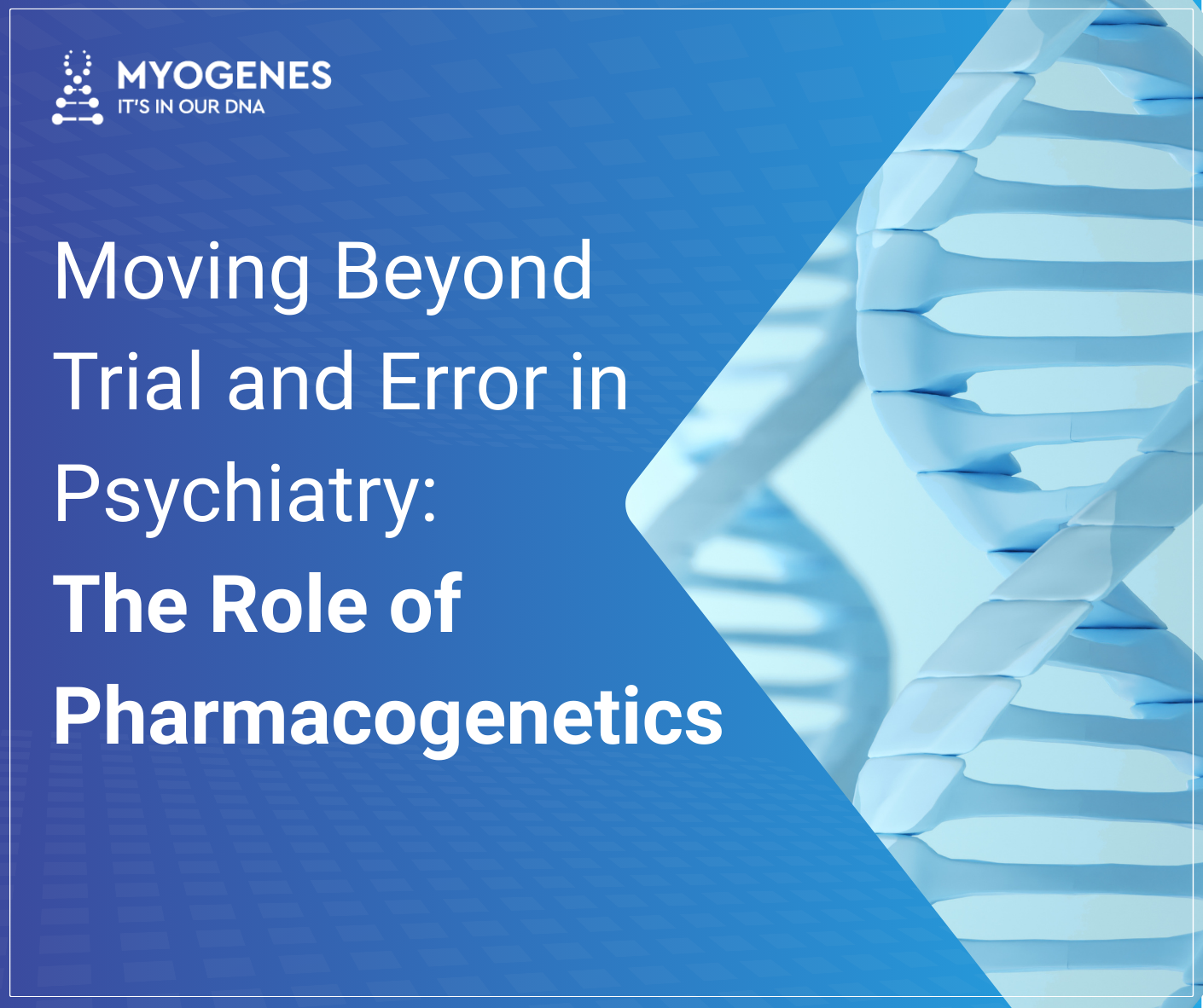Moving Beyond Trial and Error in Psychiatry: The Role of Pharmacogenetics

The Challenge of Trial and Error
Every psychiatrist knows the frustration of seeing a patient lose faith in treatment because of poor tolerability or lack of effect. These setbacks are not just emotionally draining for patients, they can also increase the risk of non-adherence, relapse, and hospitalisation.
The reality is that drug response is influenced by far more than diagnosis or symptom severity. Genetics plays a crucial role in how individuals process medication. Without that knowledge, psychiatrists are working without a full clinical picture.
Why Genetic Variation Matters
A significant proportion of psychiatric drugs are metabolised by enzymes such as CYP2D6 and CYP2C19. Variations in the genes coding for these enzymes can determine whether a patient breaks down medication too quickly, too slowly, or at a normal rate.
For example:
-
A patient who metabolises too slowly may develop high drug levels and severe side effects.
-
A patient who metabolises too quickly may never reach therapeutic levels, no matter how the dose is adjusted.
This is where pharmacogenetics provides real value. By identifying these variations, psychiatrists can avoid prescribing drugs that are less likely to be effective or well tolerated.

Clinical Benefits of Pharmacogenetic Testing
Studies have shown that pharmacogenetic-guided prescribing can:
-
Reduce the time it takes to find an effective treatment
-
Lower the incidence of adverse drug reactions
-
Improve patient adherence by reducing side effects
-
Enhance patient confidence and trust in the treatment process
For clinicians, the benefits are equally clear. Informed prescribing supports better clinical outcomes, reduces uncertainty, and strengthens the therapeutic relationship.
Practical Application in Psychiatry
Integrating pharmacogenetics into clinical practice is straightforward. The Myogenes Psychiatric Pharmacogenetic Test requires only a simple sample, with results provided in a clear and clinically relevant format. The report highlights which medications are likely to be most effective and which may pose challenges, allowing psychiatrists to make evidence-based decisions quickly.
Crucially, the test is not a replacement for clinical judgement. It is an additional layer of information that empowers psychiatrists to act with greater precision.

Looking Ahead
Personalised medicine is no longer a distant goal. In psychiatry, pharmacogenetics is already helping clinicians move away from trial and error towards targeted, patient-specific prescribing. For patients, this means fewer unnecessary side effects, faster relief, and greater confidence in treatment.
For psychiatrists, it means access to a powerful tool that supports clinical decision-making and improves outcomes.
Conclusion: The complexity of psychiatric prescribing will never be eliminated entirely, but pharmacogenetics provides a way to reduce the guesswork. By understanding how genetics influences drug response, psychiatrists can offer patients a clearer, faster path to recovery.



